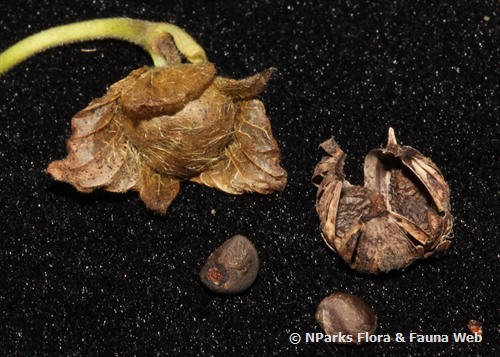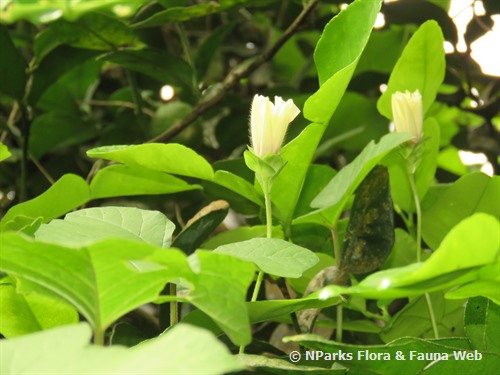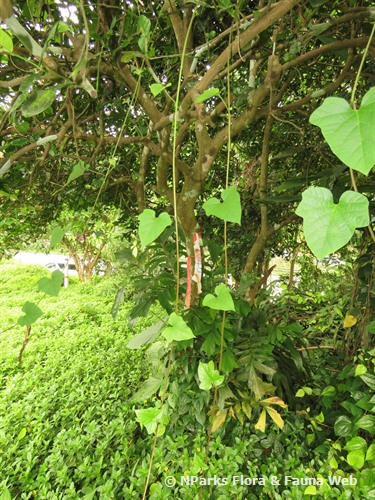
Name
Classifications and Characteristics
| Plant Division | Angiosperms (Flowering Seed Plants) |
|---|---|
| Plant Growth Form | Climber |
Biogeography
| Native Distribution | From Africa, India, Sri Lanka, continental Southeast Asia, and throughout Malesia to the Pacific Islands |
|---|---|
| Native Habitat | Terrestrial |
| Preferred Climate Zone | Tropical |
Description and Ethnobotany
| Growth Form | It is a climber with slender stem, up to 2 m high. |
|---|---|
| Foliage | Leaf is egg-shaped to triangular (2 – 14 cm long and 1 – 10 cm wide) and in alternate arrangement. Leaves are hairy, and upper surface is sparsely bumpy. Leaf tip is very short while leaf base is cuneate to hastate. Leaf margin is smooth or toothed, and petiole is 1 – 9 cm long. |
| Flowers | Inflorescence consists of 1 – 3 flowers, borne on flowering stalk which can be up to 10 cm long. Sepals are unequal, where the 3 outer sepals are much larger than the inner 2. Flower is funnel shaped (2 – 3.5 cm long), cream colored with a purple star-shaped center. The purple center is hairy on the outside. Stamens are 0.9 cm long, stigmas are ovate to oblong, and ovary is superior. |
| Fruit | Fruit is almost round (1 cm diameter) and ripens brown. Once matured, it splits open into 4 parts, while still connect at the apex. Split fruit reveals 2 – 4 seeds within each valves. Seeds are almost round (0.3 – 0.6 cm diameter), black and covered with small scales. |
| Habitat | It is often found in disturbed areas and forest edges, up to 850m altitude. |
| Associated Fauna | It is pollinated by insects. |
| Ethnobotanical Uses | Edible Plant Parts : Edible Leaves Food (Fruit or Vegetable) Others: In Uganda, the leaves are cooked and eaten as vegetable, and are made into a popular dish known as ‘Onyebe’. In Madagascar, it is grown for cattle to graze. The fibers from the inner bark is used to make ropes. |
Plant Care and Propagation
| Light Preference | Full Sun |
|---|---|
| Water Preference | Moderate Water |
References
| References | Staples, G.. 2010. Convolvulaceae. Flora of Thailand. Bangkok: The Forest Herbarium, department of National Parks, Wildlife and Plant Conservation. 10 (3): 330–468 |
|---|
Image Repository
Others
| Master ID | 33042 |
|---|---|
| Species ID | 7456 |
| Flora Disclaimer | The information in this website has been compiled from reliable sources, such as reference works on medicinal plants. It is not a substitute for medical advice or treatment and NParks does not purport to provide any medical advice. Readers should always consult his/her physician before using or consuming a plant for medicinal purposes. |


